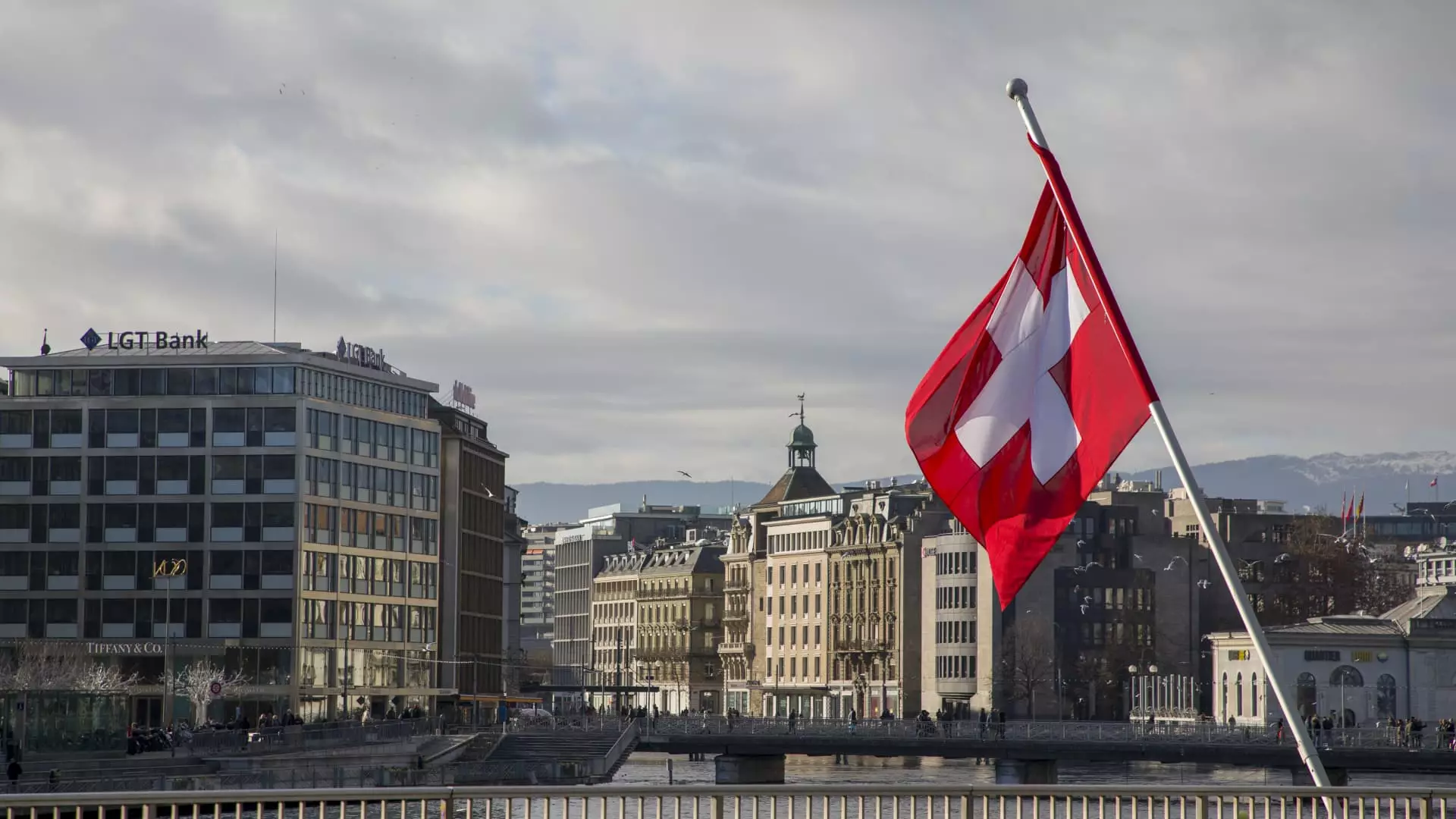In recent years, a concerning trend has emerged among affluent Americans—an increasing number are turning to Swiss banks to manage their wealth. This phenomenon is not merely a response to temporary political climates or economic downturns; rather, it signifies a troubling shift in confidence towards the U.S. financial system and its underlying political stability. The concept of “de-Americanization” has captured the attention of both investors and financial analysts alike, revealing deep-seated fears regarding the future of American wealth.
Political Dystopia and Economic Uncertainty
Many of these wealthy individuals express a profound anxiety about the political landscape. The transition from the Obama administration to Trump’s tenure sparked significant concern among the elite about the erosion of the rule of law. This disquiet has only intensified with ongoing economic challenges, including soaring national debt and drastic policy shifts. Why would anyone place their fortunes in an increasingly unstable scenario? Switzerland, with its neutral political stance and regulatory reliability, suddenly becomes a sanctuary—a safe harbor for investments perceived as vulnerable in a tumultuous environment.
Securing a Safe Haven
Switzerland offers more than just a safe banking environment; it is also home to a stable economy and a strong currency that stands resistant to the fluctuations often seen in the U.S. market. The allure of these banks is compelling enough that even the idea of buying physical gold and storing it in one of Switzerland’s well-respected facilities becomes an attractive proposition for many. The landscape is shifting; while once an extreme measure for tax evasion, today’s accounts are seen as a necessary safeguard. This is a direct response to fears about the U.S. financial system’s longevity.
A Diversified Wealth Strategy
Investors are not just interested in safeguarding their wealth; they are pursuing genuine diversification. With the dollar potentially weakening under the weight of U.S. liabilities, opening a Swiss account is increasingly viewed as a pragmatic investment strategy. Furthermore, for many, these accounts represent a “Plan B”—a potential escape route from their current lives, especially if economic or political conditions worsen. The idea of acquiring properties or even seeking second citizenship in Europe has gained traction, enabling the wealthy to leverage their assets in ways that align with their long-term security goals.
The Regulatory Landscape
The common misconception that Swiss banking is synonymous with illicit activities is outdated. Today’s regulatory measures enforce strict adherence to U.S. disclosure laws, ensuring compliance while allowing individuals to pursue banking alternatives abroad. Swiss banks, such as Pictet and Vontobel, have adjusted their operations to accommodate U.S. clients in this robust regulatory framework. High-net-worth individuals who navigate this process recognize that maintaining compliance does not undermine their financial objectives; rather, it enhances their legitimacy and security.
Implications for American Society
The growing trend of affluent Americans seeking refuge in Swiss banks is alarming for the societal impact it represents. This exodus not only detracts from the fabric of American prosperity but raises questions about the long-term stability of the U.S. economy. When the wealthiest citizens prefer to diversify their portfolios abroad, what does that signal about their trust in the American system? This phenomenon serves as a grave reminder of the implications of political instability—wherein not just policy decisions but also perceptions of governance and economic resilience push the elite to seek alternatives in places known for their prudential financial practices.

